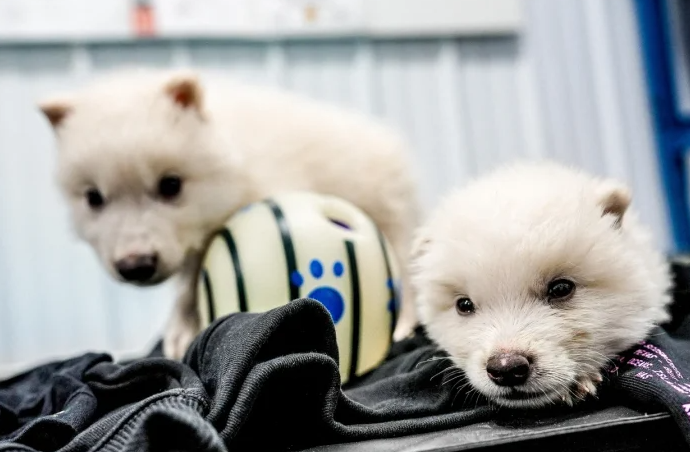In a groundbreaking achievement, scientists have announced the revival of the giant wolf from the Pleistocene era, thousands of years after its extinction, as reported by CBS News.
Colossal Biosciences, a Dallas-based biotechnology firm, has successfully given birth to three wolves of this ancient species, which once roamed North America over 12,500 years ago.
According to Colossal CEO Ben Lamm, the team utilized DNA extracted from a 13,000-year-old tooth and a 72,000-year-old skull to analyze the complete genome of the species, ultimately resulting in the birth of three healthy wolf pups.
Although many wolf fossils were discovered in the La Brea tar pits near Los Angeles, the ancient DNA was not preserved there. However, by utilizing two wolf samples from an international study focused on extinct species, the team managed to recover this vital genetic material.
The researchers conducted a thorough analysis of the species’ complete genome. They then employed CRISPR, an advanced gene-editing technology, to modify cells taken from a living gray wolf.
Unlike traditional cloning methods that depend on tissue samples, Colossal used these genetically altered cells to create embryos, which were subsequently implanted into a domestic dog surrogate for gestation.
Colossal Biosciences has welcomed two male wolves, named Romulus and Remus, along with a female named Khaleesi, inspired by the character from Game of Thrones.
Some critics argue that the physical and genetic attributes of the extinct species cannot be fully replicated. Vincent Lynch, a biologist at the University at Buffalo who was not involved in the research, noted, “Whatever ecological role the wolf performed before it went extinct can no longer be fulfilled in today’s environment.”




